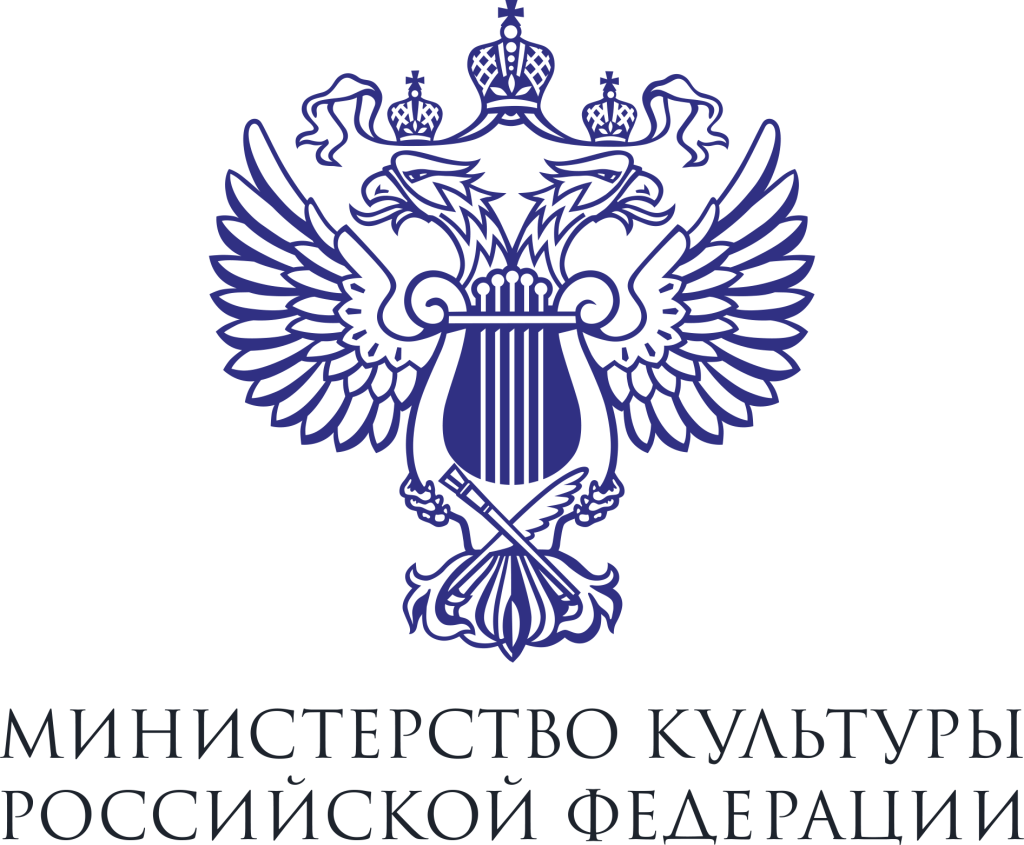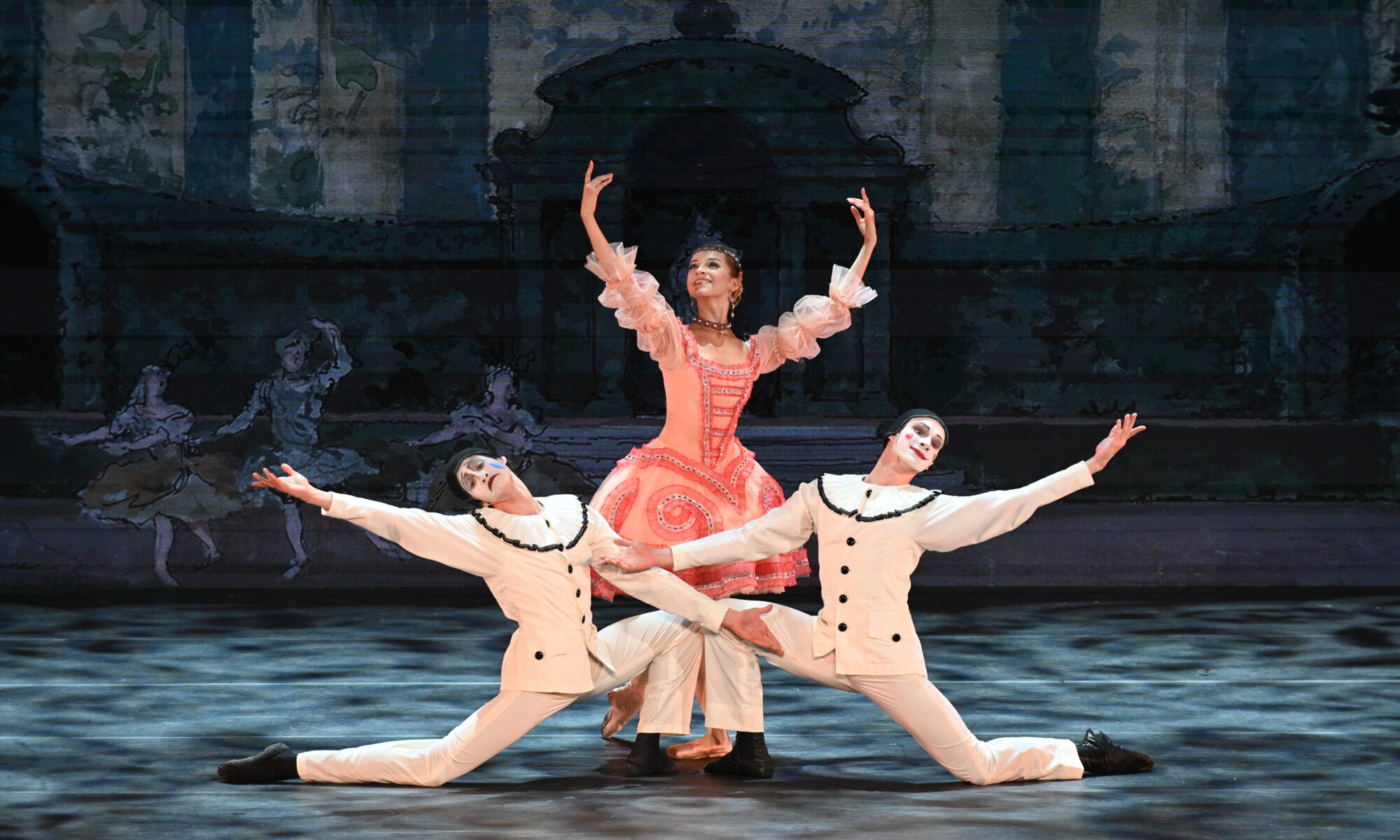Following Rio de Janeiro, where the Russian Seasons in Brazil triumphantly started on 17 June, theater venues of Sao Paulo opened their doors inviting the audience to the project’s events.
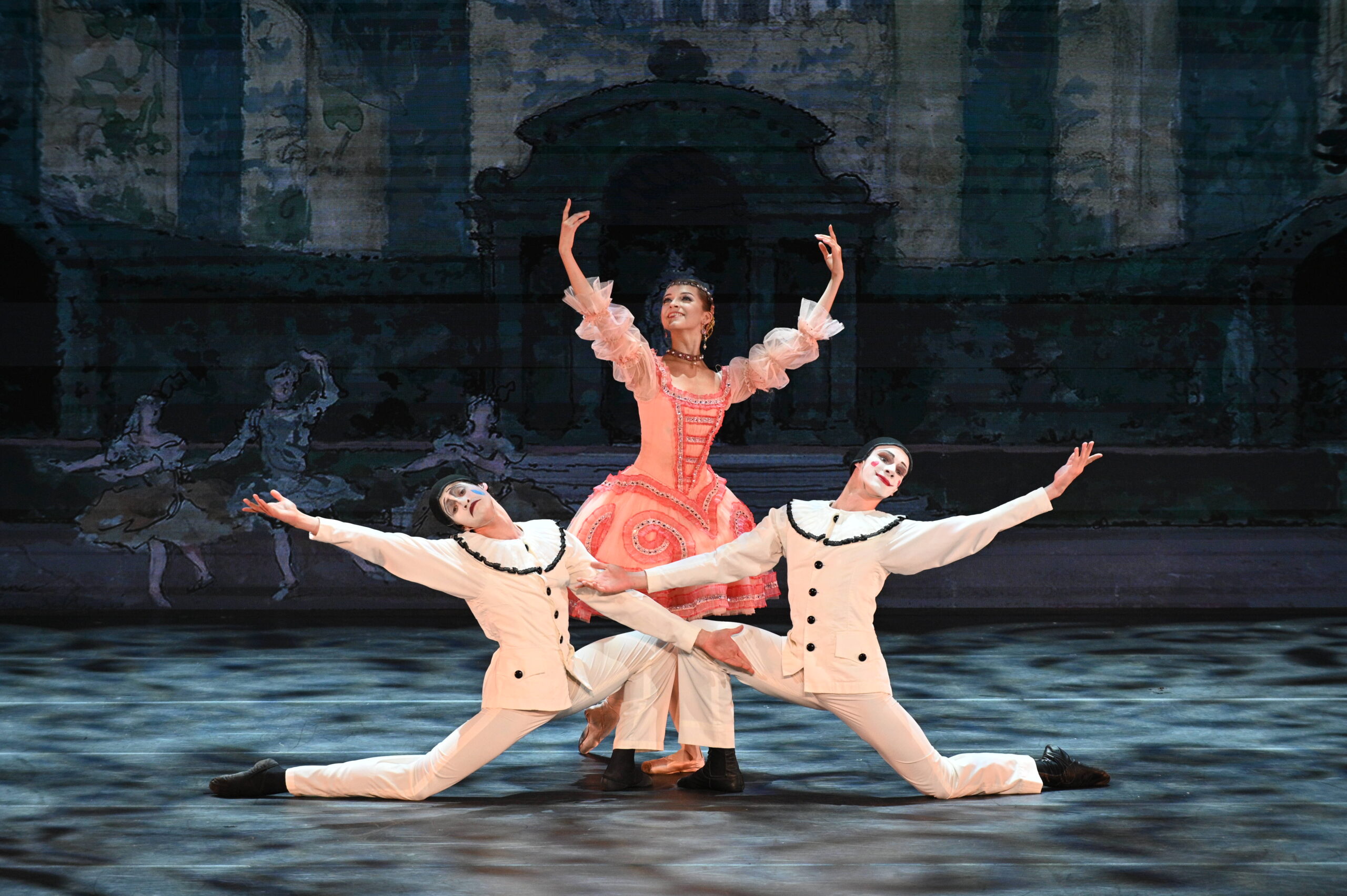
In Rio, a number of events were held: concerts by the world famous bass Ildar Abdrazakov and laureates of the Tchaikovsky competition – mezzo-soprano Zinaida Tsarenko, pianist Sergei Davydchenko, violinist Daniil Kogan, the Ensemble named after Lyudmila Zykina, as well as the exhibitions Art Masquerade of Russian Seasons; Novodevichy Convent. Towards the 500th Anniversary of the Foundation; the exhibition of arts and crafts; lectures and master classes.
In Sao Paulo, for two consecutive evenings – 24 and 25 June, on stage of Theatro São Pedro – one of the oldest and most beautiful theaters in the city, the Brazilian audience applauded the students of the Vaganova Ballet Academy.
Before the evening commenced, the Rector of the Vaganova Ballet Academy, People’s Artist of Russia Nikolai Tsiskaridze and Ambassador Extraordinary and Plenipotentiary of the Russian Federation to the Federative Republic of Brazil Alexey Labetsky appeared on stage to say welcoming words.
Nikolai Tsiskaridze:
“Today the citizens of Sao Paulo are meeting the oldest Ballet School in the world. And everything that is known in the world as “classical ballet” was, in one way or another, choreographed by those people who either worked or studied at this school. All this was done in Russia – just in this very educational institution, which today reached Brazil to present its art. Obviously, we brought the classical program – those pieces that, I believe, are known in different parts of the world thanks to the video footage. But I don’t think that the Brazilian audience have ever watched them in the form and with the cast they see them today.” .
Alexey Labetsky:
“Russian Seasons” in Brazil – a country that is our strategic partner – is a symbol of developing our relations not only in the economic and political spheres, but also in the field of culture, links between public organizations, and our peoples as a whole. Therefore we are proud to welcome here the best of our country’s cultural achievements. And above all – Russian ballet, which is highly valued in Brazil. First and foremost, the School from St. Petersburg and Nikolai Maksimovich Tsiskaridze, who brought his students here… This was Diaghilev who for the first time brought the ballet classics to Rio de Janeiro a century ago. And now we are bringing the heirs of Russian classical ballet, who have raised this art to unfancied heights.”
Vaganova Ballet Academy is one of the oldest and most reputable ballet schools in the world, the first Russian professional dance school, founded in 1738. This year the Academy celebrates 286 years of its foundation. This is the first time when its students crossed the ocean to reach Brazil.
The gala concert program featured the masterpieces of the classical repertoire – ballets of the late 19th – early 20th centuries, the creators of which were in this or that way linked with the Vaganova Academy. The eye-catching fragments of famous ballets presented in the program demonstrated the wide range of the Academy students’ technical and artistic skills. In total, about 50 students of different ages took to the stage of Theatro São Pedro.
The first part included vivid fragments of this year’s Academy graduation concert. It included: Pas d’action from the ballet The Naiad and the Fisherman, the Blue Bird and Princess Florine Pas de deux, Pas de quatre Rosary from the ballet The Awakening of Flora, fragments from the ballet The Sleeping Beauty: Puss in Boots and White Cat, Little Red Riding Hood and the Wolf.
The second part featured an incredibly colorful Suite from the ballet The Fairy Doll to the music of Josef Bayer, Riccardo Drigo, Cesar Pugni. The Fairy Doll is a restored version of the ballet by brothers Nikolai and Sergei Legat, staged in St. Petersburg in 1903. The author of the renewal and edition of the ballet is the rector of the Vaganova Academy, People’s Artist of Russia, Nikolai Tsiskaridze. Costumes by Dmitry Paradizov were made according to sketches by Leon Bakst.
The Brazilian public reacted temperamentally, meeting every piece of the program with a storm of applause. At the end, the young ballet dancers received a long standing ovation.
On 25 June, a master class by teachers of the Vaganova Academy was held for students of Escola de Dança Sao Paulo. And on 26 June, in Rio de Janeiro, Nikolai Tsiskaridze conducted a master class for the ballet troupe of the Municipal Theater of Rio de Janeiro. This is noteworthy, because classical dance in Brazil is based on Russian traditions. The founder of the first professional ballet school at the Municipal Theater of Rio de Janeiro was the Russian ballerina Maria Oleneva.
Nikolai Tsiskaridze:
“Latin America has changed in appearance a lot over the past 30 years, really very much. There appeared a huge number of gifted children, who, unfortunately, for some reason, for the last 15 years have not reached our country to study… As a school director, when I see the children who meet our criteria, I always have a desire to invite them to our school – Russia invests large funds in gifted people, and we have a special program which allows us to teach talented children from different countries for free. I will be happy to invite you, and I know that our Ministry of Foreign Affairs will do its best to give these children the opportunity to study in Russia at the most important School in the field of ballet.”
Russian Seasons in Brazil will continue until the end of the year. Very soon, at the beginning of July, a new round of tours will start – one of the most famous puppet theaters in the world , Sergei Obraztsov Puppet Theater, will present two productions: The Snowman – a beautiful and romantic story about unusual love, and flamboyant unique puppet performances Circus on Strings by Viktor Antonov. Thus, the Russian Seasons program in Brazil attracts not only adults, but also very young audiences into the orbit of interest in Russian culture. Performances will take place in Sao Paulo and other cities of the country.
In October, the local public will be introduced to Anna Karenina, a dance production of the famous Eifman Ballet. In November, master classes and lectures by leading teachers of the Russian Institute of Theater Arts – GITIS – will be held for the professional community. In December, Sao Paulo will welcome one of the best Russian jazz bands – the Moscow Jazz Orchestra under the direction of Igor Butman, the concerts of which will become the finale of the Russian Seasons in Brazil.
